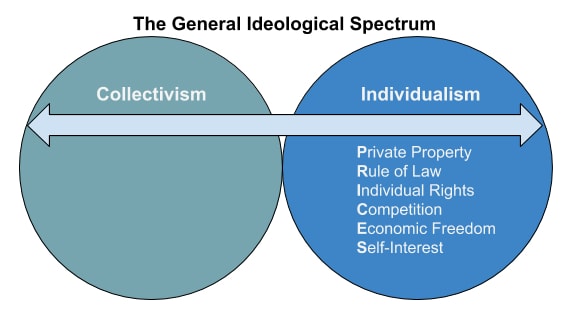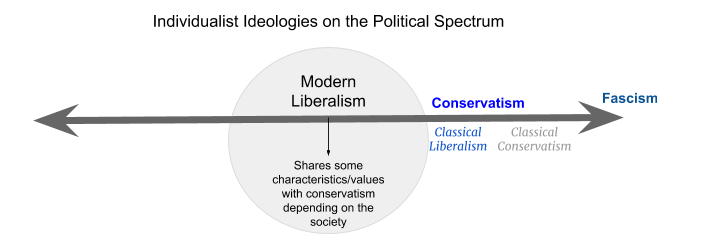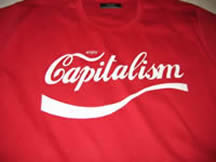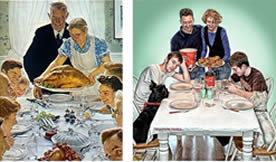UNIT 1: IDENTITY AND IDEOLOGY
Completion requirements
17. Individualism as an Ideology
Individualism as an Ideology

When you think about individualism, what kind of society do you think about?
Consider the quote on the T-shirt:
- Do you think about a perfect world where each person has the chance to live his or her dreams?
- Do you think about a world where everyone competes and many fail with no one to help them ?
- What about a society in which people are free to make the most of their own decisions, but also free to establish rules and programs to help those in need?
Consider the quote on the T-shirt:
- Is the ideological perspective more individualist or collectivist?
- Do you agree with the perspective that is reflected on the T-shirt?


Study the spectrum below. Each of these ideologies will be studied in subsequent units.

Capitalism is an economic system that takes many forms. It is based on a belief in competition, private property, and the value of obtaining wealth.
Canada, the United States, and most democratic nations believe in capitalism.

Conservatism is an ideology based on preserving society as it is, without making change towards greater freedom or equality. Conservatives tend to believe in following traditional values. Within every country, there are individuals who are more conservative than others.
There are many different types of conservatives. Some may call themselves financially (fiscally) conservative, while others would say they are socially conservative.

All democratic nations today are liberal to some extent.
Key in liberalism is a belief in individual freedom in political and economic affairs. Today, all democratic nations are liberal to some extent.

Most capitalist nations support a degree of consumerism.